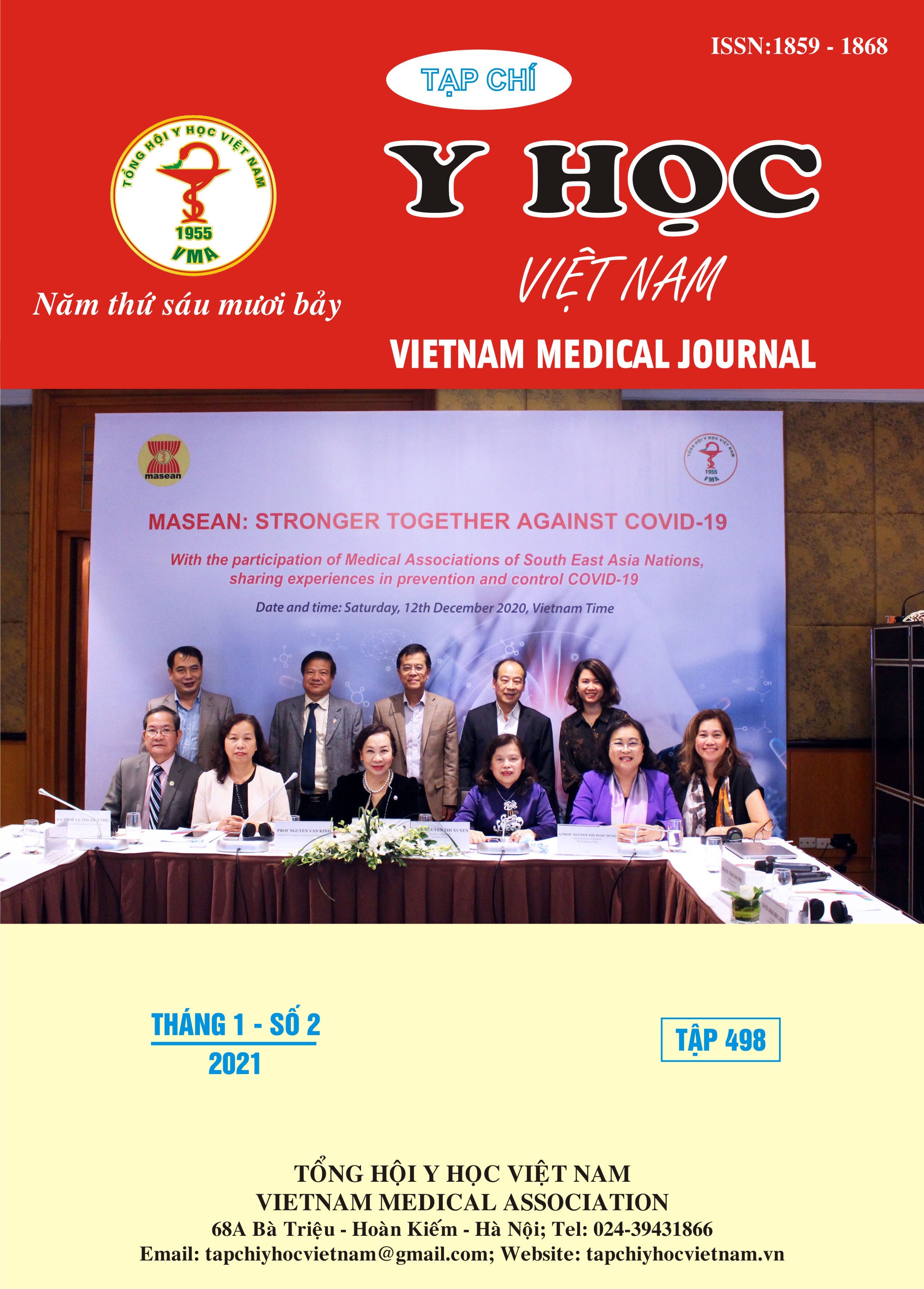CLINICAL NOTES FOR POST OPERATIVE CARE IN BIMAXILLARY ORTHOGNATHIC SURGERY PATIENT AT ODONTO-STOMATOLOGY DEPARTMENT, HANOI MEDICAL UNIVERSITY HOSPITAL 2020
Main Article Content
Abstract
Postoperative patient management is critical for high quality patient treatment and predictable patient outcomes in orthognathic surgery. In order to provide consistent, high quality outcomes for patients a thorough understanding and ability to implement postoperative management protocols and strategies must be gained. In this article, several bimaxillary orthognathic surgery cases are presentend with some clinical notes in nutritional and oral hygiene care.
Article Details
Keywords
Postoperative care, orthognathic surgery
References
1. Robinson RC, Holm RL. Orthognathic surgery for patients with maxillofacial deformities. AORN J. 2010;92(1):28-49; quiz 50-22.
2. Sexton J. Orthognathic surgery in a surgical day care setting. Journal of oral and maxillofacial surgery: official journal of the American Association of Oral and Maxillofacial Surgeons. 1991; 49 (8):917.
3. The Intensive Care Society Standards. Levels of Critical Care for Adult Patients. 2009.
4. Karakaya A, Moerman AT, Peperstraete H, Francois K, Wouters PF, de Hert SG. Implementation of a structured information transfer checklist improves postoperative data transfer after congenital cardiac surgery. European journal of anaesthesiology. 2013;30(12):764-769.
5. Tan SK, Lo J, Zwahlen RA. Are postoperative intravenous antibiotics necessary after bimaxillary orthognathic surgery? A prospective, randomized, double-blind, placebo-controlled clinical trial. Int J Oral Maxillofac Surg. 2011;40(12):1363-1368.
6. Chegini S, Dhariwal DK. Review of evidence for the use of steroids in orthognathic surgery. The British journal of oral & maxillofacial surgery. 2012;50(2):97-101.
7. Busby GP, Mullen JL, Mathews DC, Hobbs CL, osato EF. Prognostic nutritional index in gastrointestinal surgery. Am J Surg. 1980;139:160-167.
8. Robinson PG, Deacon SA, Deery C, et al. Manual versus powered toothbrushing for oral health. Cochrane Database Syst Rev. 2005(2):CD002281.
2. Sexton J. Orthognathic surgery in a surgical day care setting. Journal of oral and maxillofacial surgery: official journal of the American Association of Oral and Maxillofacial Surgeons. 1991; 49 (8):917.
3. The Intensive Care Society Standards. Levels of Critical Care for Adult Patients. 2009.
4. Karakaya A, Moerman AT, Peperstraete H, Francois K, Wouters PF, de Hert SG. Implementation of a structured information transfer checklist improves postoperative data transfer after congenital cardiac surgery. European journal of anaesthesiology. 2013;30(12):764-769.
5. Tan SK, Lo J, Zwahlen RA. Are postoperative intravenous antibiotics necessary after bimaxillary orthognathic surgery? A prospective, randomized, double-blind, placebo-controlled clinical trial. Int J Oral Maxillofac Surg. 2011;40(12):1363-1368.
6. Chegini S, Dhariwal DK. Review of evidence for the use of steroids in orthognathic surgery. The British journal of oral & maxillofacial surgery. 2012;50(2):97-101.
7. Busby GP, Mullen JL, Mathews DC, Hobbs CL, osato EF. Prognostic nutritional index in gastrointestinal surgery. Am J Surg. 1980;139:160-167.
8. Robinson PG, Deacon SA, Deery C, et al. Manual versus powered toothbrushing for oral health. Cochrane Database Syst Rev. 2005(2):CD002281.


